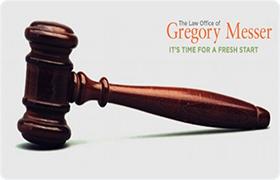Far Rockaway Bankruptcy Lawyer, New York, page 5
Sponsored Law Firm
-
 x
x

Click For More Info:
-
Law Offices of Gregory Messer
26 Court Street Suite 2400 Brooklyn, NY 11242» view mapBankruptcy & Debt It's Time For A Fresh Start
Experienced bankruptcy attorney Gregory Messer will work with you personally to set your mind at ease and relieve the strain you’re facing from personal or business debt.
800-887-8940
Includes: Bankruptcy Litigation, Commercial Bankruptcy, Consumer Bankruptcy, Dissolution
Steven Dennis Dreyer
Tax, Corporate, Commercial Bankruptcy
Status: In Good Standing Licensed: 53 Years
Matthew Tollin
Insurance, Foreclosure, Consumer Bankruptcy, Intellectual Property
Status: In Good Standing
Tracy Renee Field
Residential Real Estate, Wills, Living Wills, Bankruptcy
Status: In Good Standing Licensed: 20 Years
 Gregory Messer Brooklyn, NY
Gregory Messer Brooklyn, NY Practice AreasExpertise
Practice AreasExpertise
